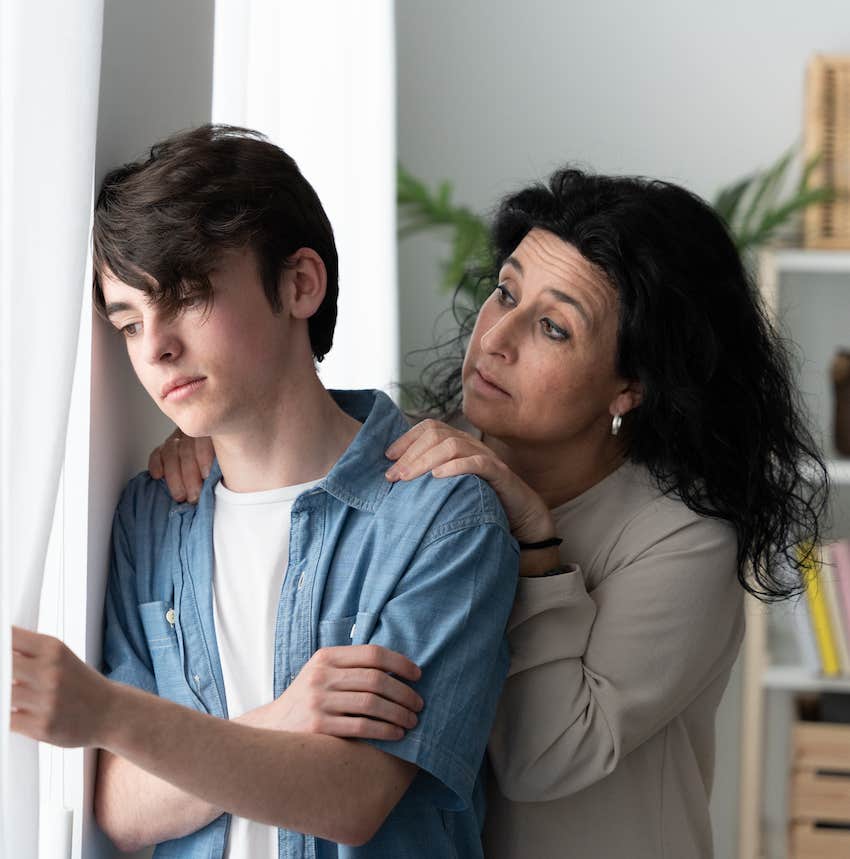10 Tiny Signs Your Teenager Is Depressed
Whatever the cause, depression is a biological condition.
 cottonbro studio | Pexels
cottonbro studio | Pexels We all know that teens are moody. You remember your teen years and how intense your feelings were, how you soared to edgy emotional highs, and then plummeted down into stress and heartache over troubles that seem now insignificant.
Depression is a different matter. It is not moodiness, it is a mood disorder — a serious medical condition that often leads to suicidal thoughts and behaviors. Until recently, it was thought that children and teens do not get mood disorders like depression and bipolar disorder. The sad truth is they do. For example, please consider these statistics:
- The average age of depression onset is 14 years old
- By the end of their teen years, 20% will have had depression
- More than 70% will improve through therapy and medication
- However, 70% of teens don't receive help regarding their depression
What's worse? Untreated depression can lead to substance abuse, academic failure, bullying (30% for those bullied, 19% for those doing the bullying), eating disorders, and even suicide, which is the third leading cause of death among 10 to 24 year-olds.
How do you tell the difference between clinical depression and ordinary teen moodiness? These are the signs parents may notice. If they last for at least two weeks, what you are seeing may be depression.
Here are 10 tiny signs your teenager is depressed:
1. Extreme irritability
An irritable, sad, empty, or cranky mood and belief that life is meaningless.
 Egoitz Bengoetxea via Shutterstock
Egoitz Bengoetxea via Shutterstock
2. Zero interest in anything
Loss of interest in sports or activities they used to enjoy, withdrawal from friends and family, and pervasive trouble in relationships.
3. Dietary concerns
Changes in appetite, significant weight gain or loss.
4. Sleep issues
Excessive late-night activities, too much or too little sleep, trouble getting up in the morning, and often late for school.
5. Like a caged animal
Physical agitation or slowness, pacing back and forth, or excessive, repetitive behaviors.
6. Warning, low battery
Loss of energy, social withdrawal, withdrawal from usual activities, boredom.
7. Harsh self-criticism
Making critical comments about themselves, behavior problems at school or home, overly sensitive to rejection.
8. Performance problems
Poor performance in school, drop in grades, frequent absences.
9. Frequent physical issues
Frequent complaints of physical pain (headaches, stomach), frequent visits to school nurse.
10. Preparing to exit
Writing about death, giving away favorite belongings, comments like: "You'd be better off without me."
Depression often runs in families. The causes may be related to abuse or triggered by a stressful life event like divorce, a death, or a breakup. Whatever the cause, depression is a biological condition. It is not something to be ashamed of and it needs to be treated. A combination of medication and cognitive behavioral therapy is often recommended for teens.
The whole family must receive education and support, which is available through organizations like Families for Depression Awareness. They offer extensive resources on depression for teens, including a Teen Fact Sheet that this article draws from.
If you think your teen is depressed, get them evaluated. Ask for a referral to a mental health clinician from your doctor or nurse, a local mental health clinic or hospital, or a clinician listed on the Families for Depression Awareness website. Seek support and help from friends, clergy, and support groups.
Frank Medlar has a background in Training and Development with an MS in Education. Frank has extensive mediation training and uses heart-focused methods that strengthen the relationship to resolve problems.

